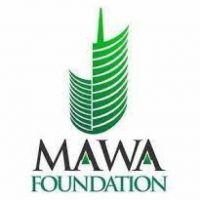Abuja residents have continued to recount how the Coronavirus outbreak destroyed their business and made them poorer.
Mrs. Uche Rita, resident of Zone 6 in Dutse Alhaji Area of Buhari Area Council Abuja, the Nigerian capital city who spoke to Media Advocacy West Africa Foundation (MAWA Foundation) in her residence narrated how coronavirus has destroyed her poultry business and made her poorer.
Asked in what area did the Coronavirus destroyed her poultry business and made her poorer, Rita explained that the chickens she sells are brought from Ogun state, and, because of the lockdown, transporting them has become very difficult and expensive, forcing the sellers to increase the price they were been sold before the coronavirus pandemic.
She, however, added that apart from the price increase, her customers no longer patronize her, pointing out that their purchasing power has dropped so drastically that they cannot buy chicken anymore.
“Before now, I normally sell six to 10 chickens daily at the price of N3, 500 each, but, since the coronavirus outbreak, even with N3, 000 nobody comes to buy,” Rita told MAWA.
“People have reduced their spending, they no longer buy chicken, poverty has taken over everywhere because of coronavirus outbreak” she added.
Rita told MAWA that she continues to suffer loss, as the feeds for the chicken have even become more expensive to afford.
Lamenting how the situation has become worse, Rita said there is a 200 percent increase in chicken, and, in the whole situation, she bears the burden of the loss more than everybody.
She added that any attempt to make the consumers share from the burden of the price increase is vehemently resisted; they will stop buying and consider it a luxury looking at the hardship everybody faces at this time.
She has, however, appealed to the government to help provide intervention funds for households to help ameliorate the economic consequences of coronavirus.
This report is supported by the Open Society Initiative of West Africa (OSIWA)
